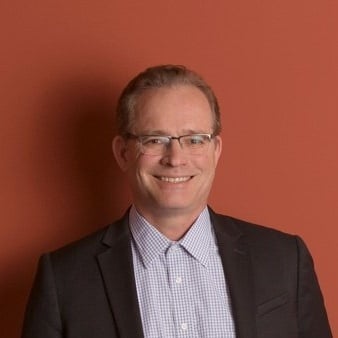
An iconic TV series in the early ’90s featured a teenager, Doogie Howser, who “earned a perfect score on the SAT at the age of 6, completed high school in nine weeks at the age of 9, graduated from Princeton University in 1983 at age 10.” Then, he slowed down and took four looong years to get through medical school.
“Completed high school in nine weeks.” Let that sink in deep, for a millisecond. Did it strain credulity? Did it sound great? Are you excited that self-paced digital learning can make this accelerated “learning” happen for more and more Doogies in the near future? Because earlier is just better, right?
I remember going to a community outreach meeting back in 2000, where attending teachers were excitedly being informed from the stage that new state standards meant their students would be “tested on high-level content they currently only get to in college.” I was stunned by this earlier-is-better strategy, thinking that we hadn’t really nailed most students’ learning of the good old high school stuff quite yet. By 2006 some unintended but damaging consequences of this value judgment that “earlier is better” were described by Tom Loveless of the Brookings Institute’s Center for Educational Policy. In 2013, California dropped its earliest-in-the-nation requirement that all eighth-graders take algebra.
Here is my rant: Stop this “faster is better” one-dimensional talk.
Having started UCLA at age 15 myself, I feel quite the laggard compared to this ideal. But then I also keenly experienced the social downside risk to acceleration — no sports, no girlfriends, no prom. Too young + too academically successful = stick to your geek math club friends. Seriously folks, scrambling the social institution that is high school for 14-18 year olds needs to be a consideration when you hear, “Well, when they finish the third-grade software, just advance ’em right to fourth and then, if they can, to fifth.” And one does hear it. What’s that, you say? What about the other, non-digital aspects of learning? “Nah, it doesn’t matter where the teacher or the rest of their peers are! Speed is a goal! Get with it!”
Yes, it’s exciting that some types of digital content enable quicker uptake. But quicker uptake as a primary goal is dangerous.
What gets lost in the conversation about acceleration is GOING DEEP in learning. There is another dimension to accelerate besides calendar time: accelerate diving deep. Use digital content to dive deeper. Don’t promote 12-year-old college students as an ideal. Please, the social costs are too high. If you are testing for competency, test DEEP. The vertical dimension, depth of learning, is bottomless in every content area. (Fractions concepts, for example, can open up a deeper exploration of rationals and irrationals.)
Take extra time to dive deeper into third-grade math. As MIND Research Institute co-founder Dr. Matthew Peterson once said, if a third-grader gets quickly through third-grade digital content, “Let’s get them a Ph.D. in third-grade math! And then a Nobel Prize in fourth-grade math!”
Are you satisfied with the shallowness of learning that’s needed to beat the current system? Is what you want from digital tools to rip through inch-deep learning much faster?
I’m here to say — personally, as well as pedagogically — that the future can’t be about some nine-week high school frenzy, cramming American history dates, science vocabulary and math formulae. It’s not about 14-year-olds finishing M.D. programs. Let’s use digital tools to get more powerful learning. Aim to go deep, not fast.
A version of this blog originally appeared on ArcSparks.

Andrew R. Coulson, Chief Data Science Officer at MIND Research Institute, chairs MIND Education's Science Research Advisory Board and drives and manages all research at MIND enterprises. This includes all student outcomes evaluations, usage evaluations, research datasets, and research partnering with grants-makers, NGOs, and universities. With a background in high-tech manufacturing engineering, he brings expertise in process engineering, product reliability, quality assurance, and technology transfer to edtech. Coulson holds a bachelor's and master's degree in physics from UCLA.
Comment